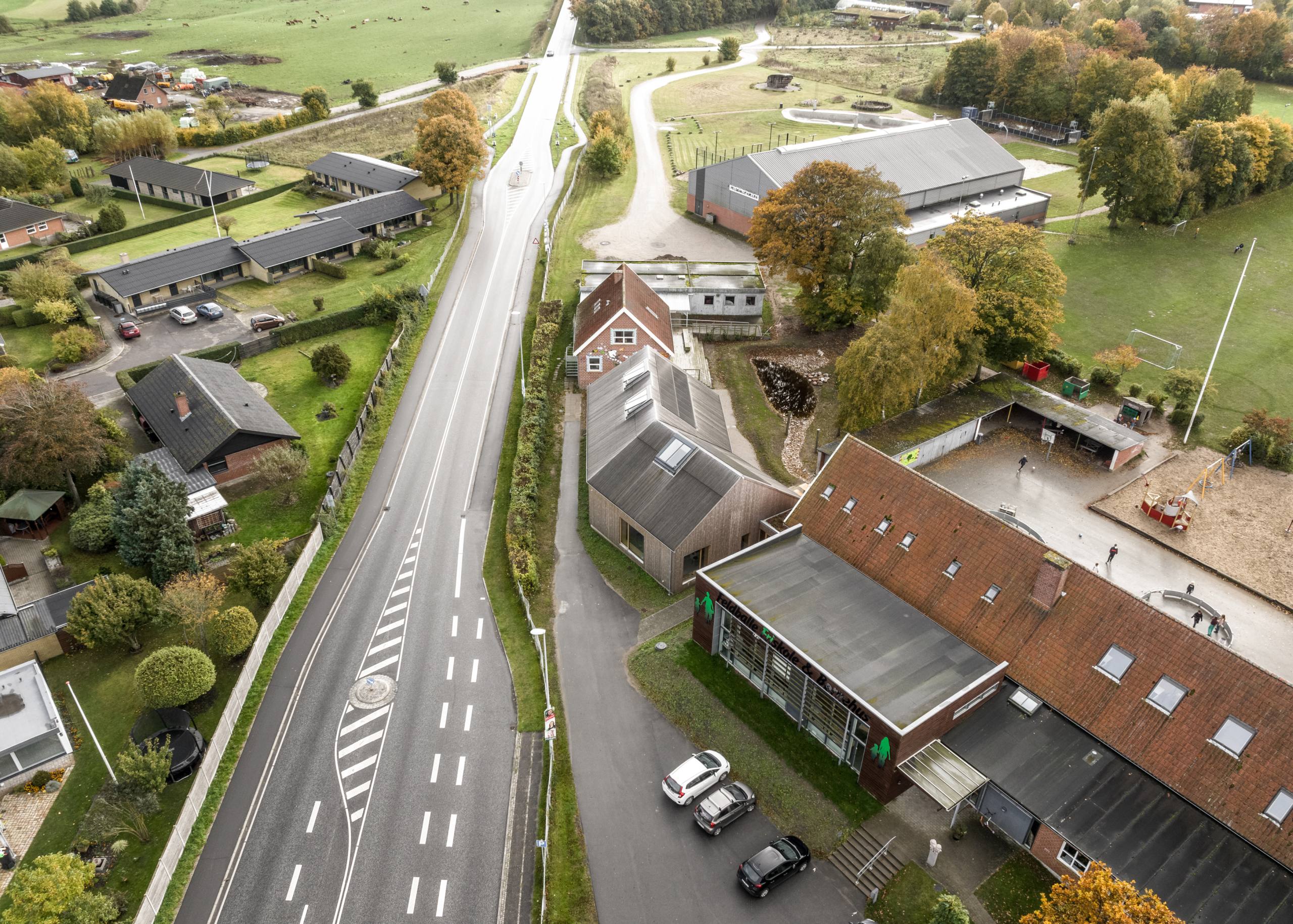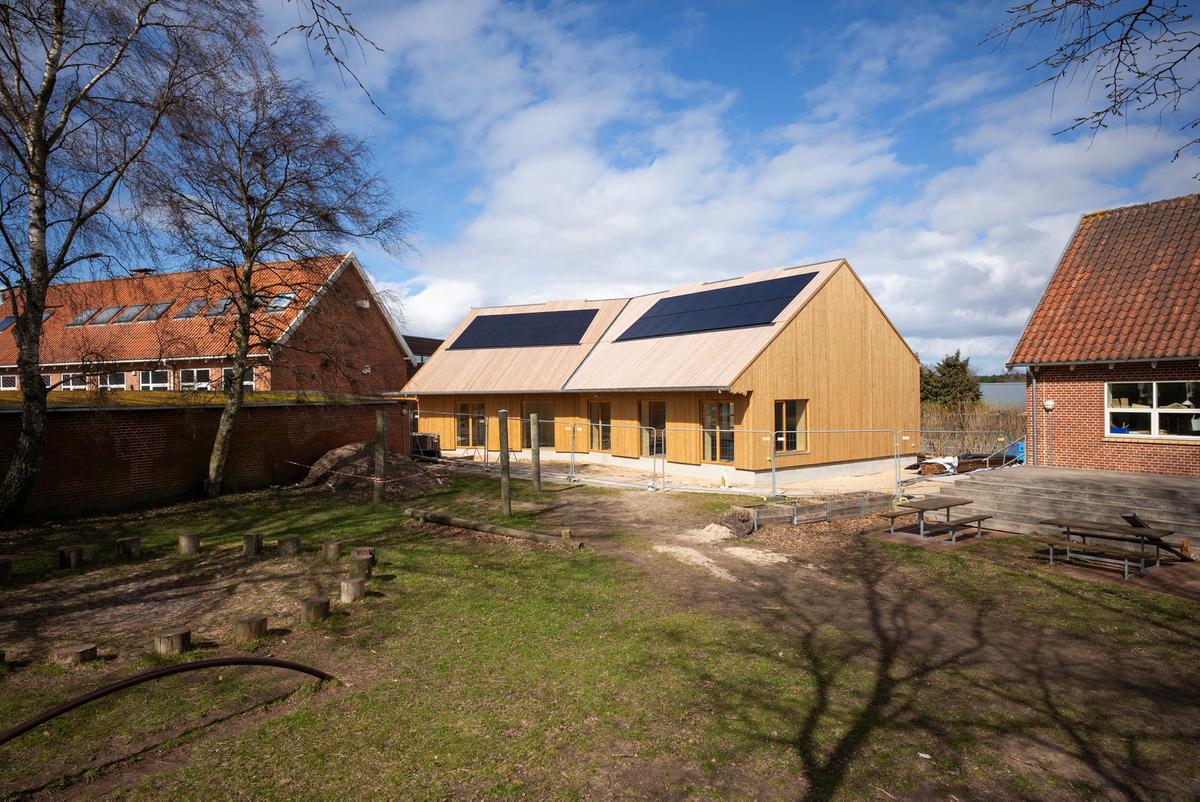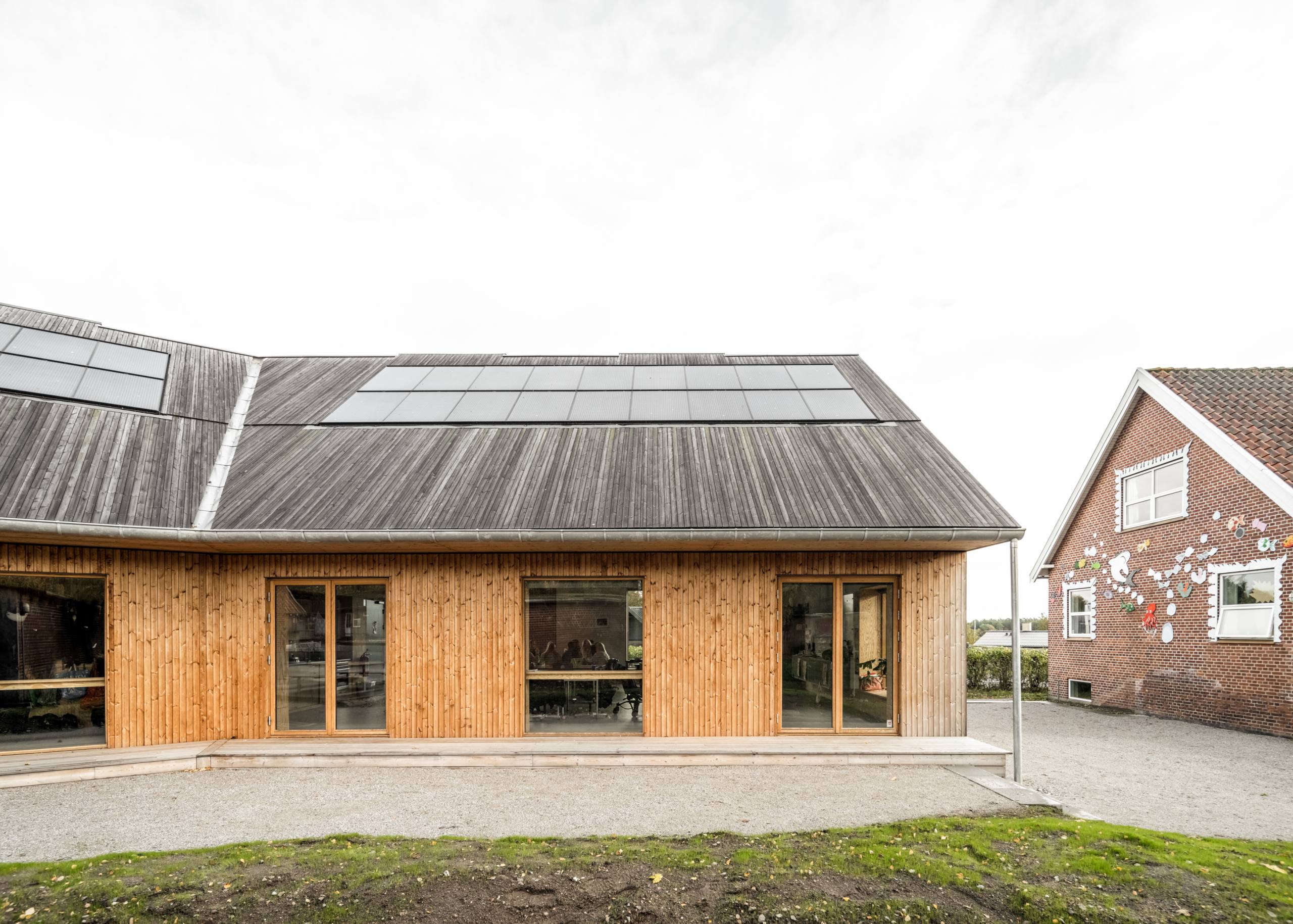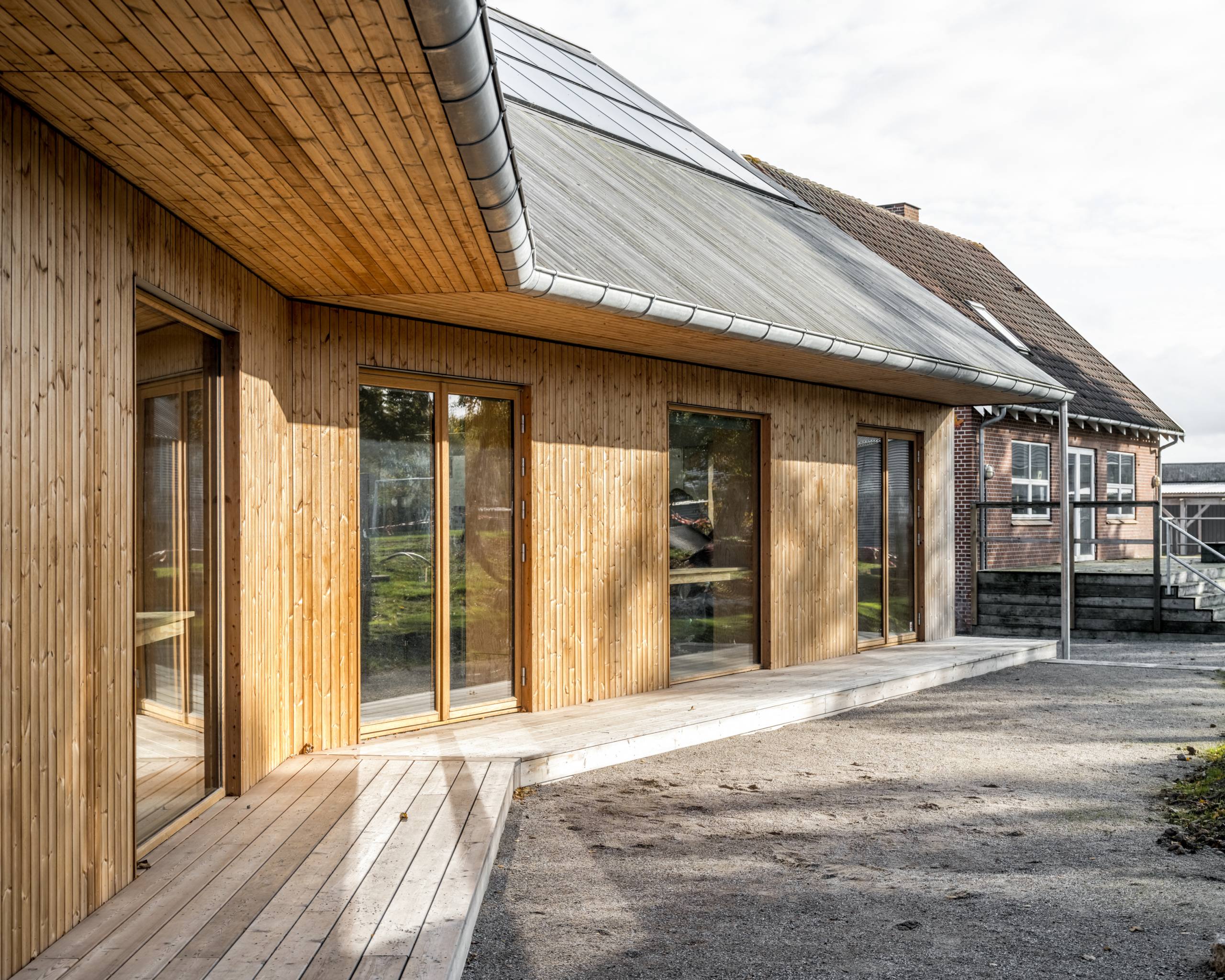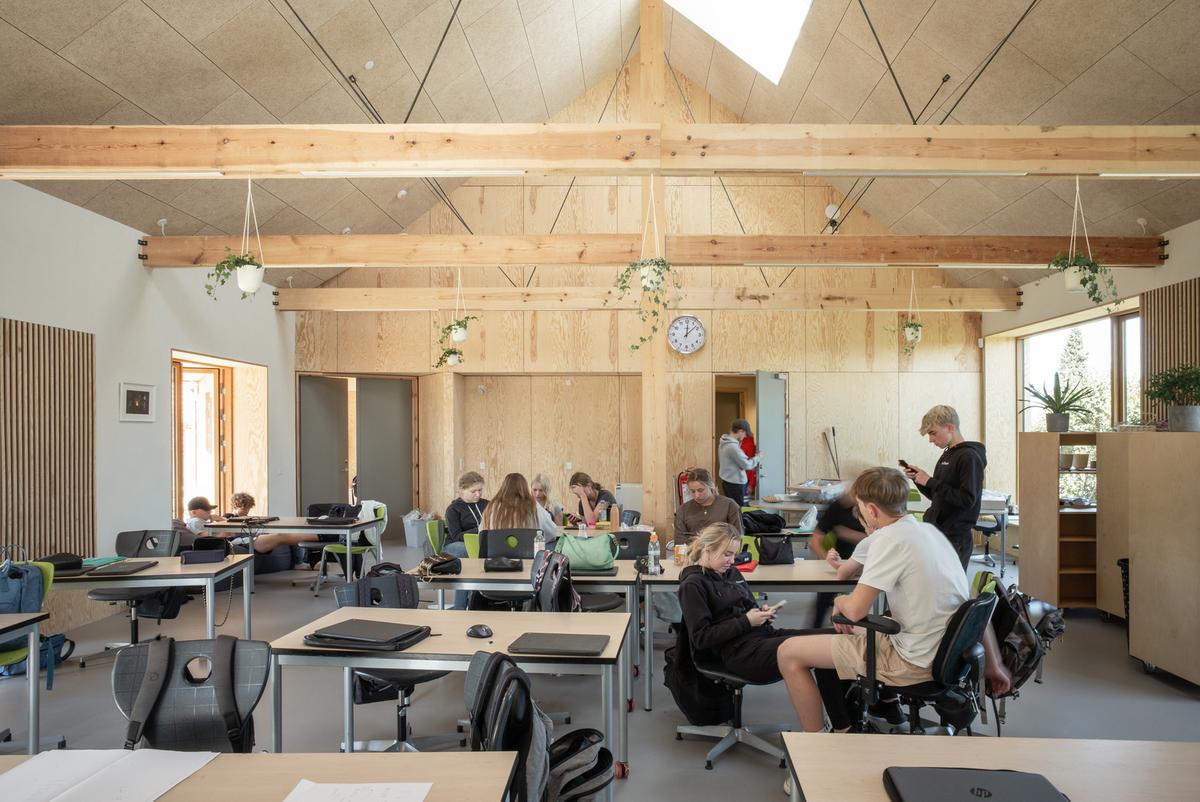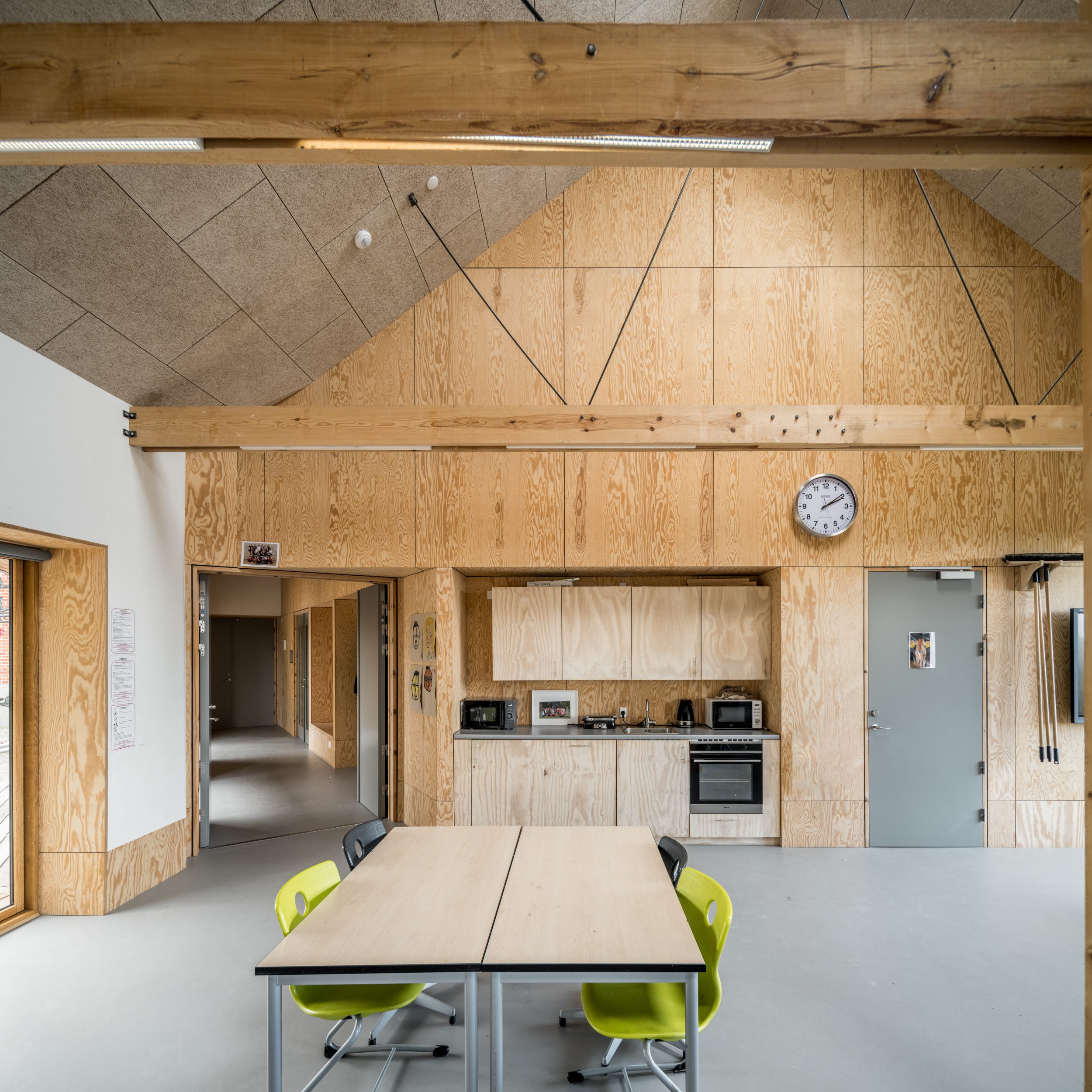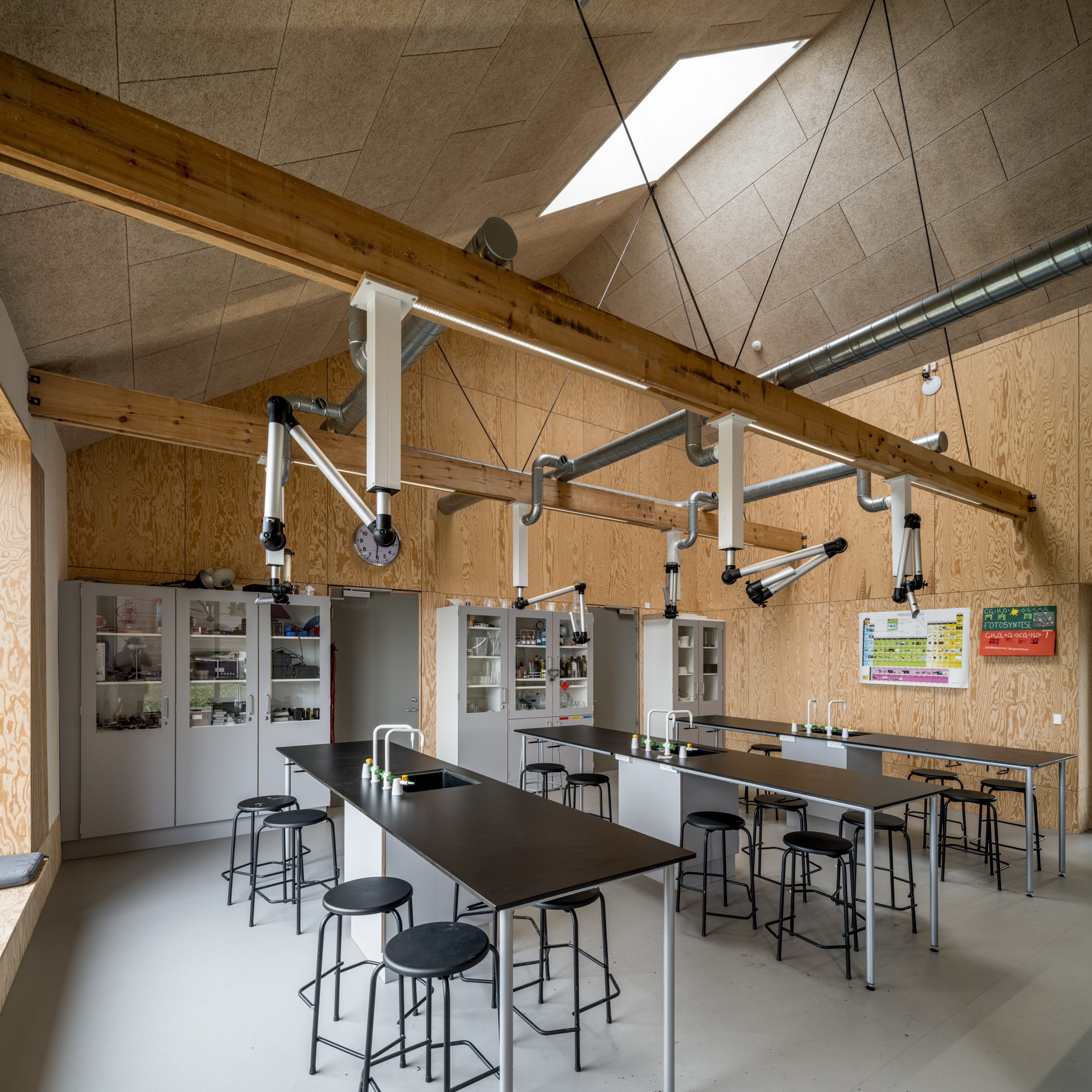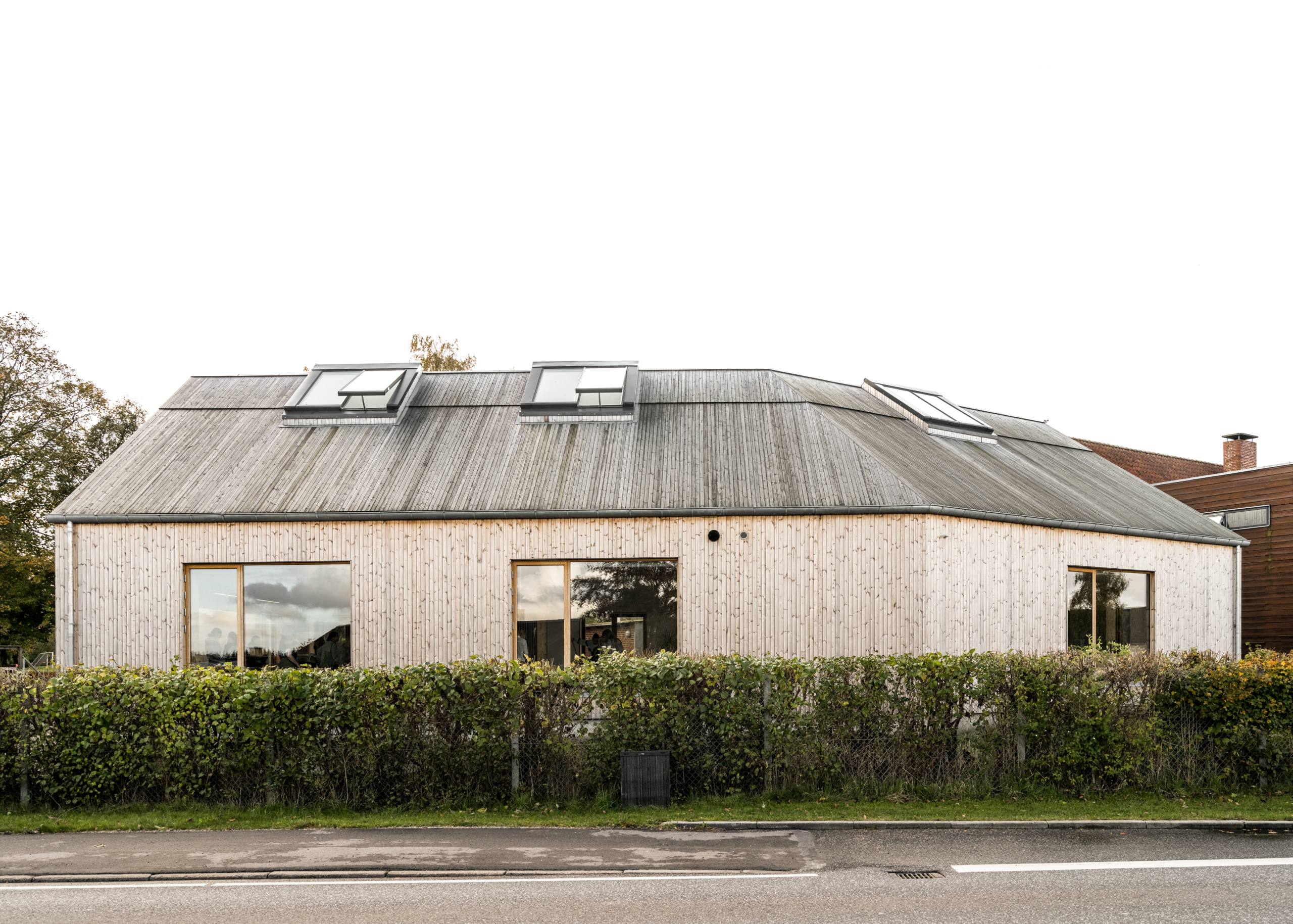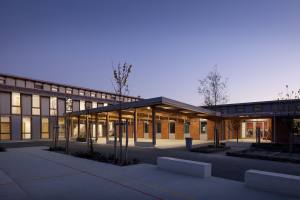Feldballe School/
Henning Larsen
Project Details

Location(City/Country):
Rønde / Denmark
Tipology:
Educational
Year (Design/Construction):
2018 / 2022
Area (Net/Gross):
250 m2 / -
Operational Carbon emissions (B6) kgCO2e/m2/y:
-
Embodied Carbon emissions (A1-A3) kgCO2e/m2:
-- Use of local materials such as straw and seaweed helps to allow a low total embodied carbon
- Material layers are kept to a minimum to lower total embodied carbon
- Passive daylighting and ventilation strategies are deployed to lower the operational energy demand .
- The building is designed for disassembly to allow for future use scenarios.
Driven by the commitment to design a building that captures more carbon than it emits, the 250m2 / 2700ft2 extension of Feldballe School in Rønde, Denmark, is Henning Larsen’s most ambitious project to date. Built for science classes for a generation that will come of age with the weight of the climate crisis, the architecture practice implemented an uncompromising material strategy; rethinking the conventional building blocks.
Embodying immense potential without compromising on function, atmosphere and architectural expression, the school extension is built almost entirely of bio-based materials, viable alternatives to concrete, brick and steel, and crucially, materials that sequester rather than emit CO2, are totally free of toxic chemicals, fire-safe, and offer both efficient insulation and a great indoor climate.
With support from the Danish philanthropic organisation, Realdania, and in partnership with EcoCocon, the final design solution is a structure made of a pioneering panel system of compressed straw, a roof made solely of timber, and a ventilation system made of eelgrass – a common seaweed along seashores in the majority of the Northern Hemisphere.
The project has redefined the standards for sustainable construction, examining the entire life cycle of a building. Part of eco-community Friland, the school’s goal of preparing a future generation of thinkers, leaders, and community members committed to creating a more sustainable world was a catalyst for the design ambition.
The design team created a framework for sustainable design that doesn’t exceed planetary boundaries, comprising five ambitious principles: incorporate sustainably sourced, renewable, bio-based materials to sequester carbon; use already produced local materials to save resources and energy; employ materials that are free of toxic chemicals, minimising off-gassing and ensuring clean production and processing procedures; lower operational energy consumption by ensuring a healthy indoor climate, fostering an environment that balances daylight with passive ventilation; design for disassembly, enabling the reuse of building components in the future.
Operationalizing these principles, the design team successfully surpassed the targets, arriving at a footprint of 6kg of CO2e per m2 per year, over a lifespan of 50 years – per Danish standards. Provided the space remains used and respected by the school community beyond the next few decades, the footprint is reduced further to -3kg of CO2e per m2, per year.
The integrated panel system of compressed straw in wooden cassettes was produced by partners EcoCocon with the utmost precision, forming a construction system that is adaptable and applicable in a vast range of building typologies. The roof is made entirely of certified locally produced timber, and untreated plywood makes up the surfaces of both the inner walls and the built-in furniture. The natural materials lend the extension a warm, welcoming expression, and because there is no need for large ventilation ducts or suspended ceilings, the rooms are spacious and high-ceilinged.
Natural and passive ventilation systems eliminate energy consumption on a daily operational level, further supported by solar panels on the roof. The permeable characteristics of straw allow humidity to escape, and the interior walls consist of clay plaster supporting its diffusion qualities. Air filters of eelgrass allow natural ventilation, automatically controlled by monitoring air quality and temperature.
The entire structure is designed for easy disassembly and reuse, prioritising circularity and waste management, offering flexibility, ease of repair, and making it possible to reinstall or recycle its parts in the future.
Client: Feldballe School
Funding Partner: Realdania
Supplier: EcoCocon
Contractor: Høgh & Sønberg
Architect: Henning Larsen
Engineer: Reeholm & Bredahl
Photography: Rasmus Hjortshøj – COAST
